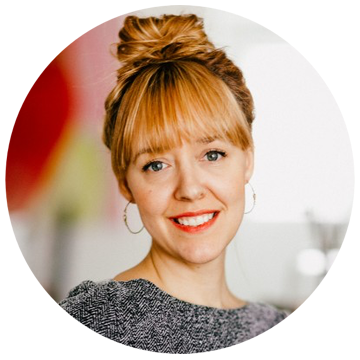Creating Brain-Space

I’ve always been an organizer. Well, according to my mother I skipped a phase when I was a teenager and my room was a total mess, but outside of that, I’ve been organized.
And when I say “organizer", I mean being able to organize physical spaces to work for me (office, home), organize things (events, or my calendar) and organize my thoughts (to see opportunities).
Organizing is something that feels natural to me, it’s one of my strengths. For a long time I didn’t pay much attention to it, as it was something that was just part of me, until I became a Business Coach and dived into the world of Neuroscience.
As a Business Coach my job is to “partner with clients in a thought-provoking and creative process that inspires them to maximize their personal and professional potential” (International Coach Federation, 2020). But, in a time when there are so many options, so much information coming our way, so much to do, to learn, to read, to accomplish, we tend to get overwhelmed easily and stuck in the clutter in our head. We lack what I call ‘brain-space’ which I define as having the mental capacity to focus on the things that are important at that time.
And I believe that this brain-space is needed to make decisions, to allow ourselves to grow and develop, to take charge and take action, and to maximize our personal and professional potential.
In my business I focus on business coaching, training and professional workspace organization, to empower people to create ‘space’ for what's important to them so they can be in charge of their work-lives. I do this from a brain-based perspective, meaning, that everything that I offer is infused with Applied Neuroscience education.
The brain is involved in our thinking, feelings, actions and reactions - it helps us learn new things and it is highly adaptable and changeable - it makes us human. Bringing this information in at the appropriate times into the conversations with my clients, who are in the process of change and growth, is important and, in my opinion, indispensable. It allows them to understand their own behavior or habits, it helps to normalize feelings and thoughts, and helps them focus on what is truly important to them. It helps them create ‘brain-space’.
When we look for this brain-space, I think there are a number of things that can get in the way and result in our brains being overloaded:
Distracting and ever-changing world
There are many things that grab our attention daily. We live in a highly distracting and ever-changing world with cellphone notifications, instant messages, email, open spaces, AR, data.
Possibilities
We also live in a time where there is a lot possible - a lot of us have multiple passions we would like to pursue and goals we want to achieve.
We differ as humans
We have different “roles” in life (eg. we are someone’s child, friend, parent, teacher). We have different moments in the day when we are most efficient. We like and dislike different concepts and get excited about information that others will not. We can also feel energized from certain types of work that others might feel stressed out by. And, we tolerate things like ‘clutter’ differently.
Priorities
We also all have priorities that need attention at different times - different times in our day, in our month, in our year, and in our lives. Our main priority when we wake up might be getting our child dressed, fed and safely to school. Then our morning might be all about getting the admin tasks off our plate, while the afternoon is full of meetings and writing documents. And the evening might be for our friends and family.
On a longer time-scale, when we were in our twenties our main priorities might have been getting the job we loved, and spending as much time as we could with our friends. Then in our thirties our priorities might have shifted to starting our own business or saving up for that dream trip or home. And when we’re in our 40’s, and our business is running smoothly, we might like to focus more on our family or side-projects.
These things are ever-changing - and different things are important at different times in our life, in our career, and in our day.
However, we all need to focus from time to time, to get stuff done. We sometimes need to help our brains manage the overload.
How do we create brain-space?
First of all it is helpful to understand how the brain deals with this overload of information. In theory, our brain's ability to store long-term memories is almost endless. But what fills up very fast is our short term memory bucket. This happens when we get a lot of different information at once.
So, it is important to help our brain manage the overload and to help it function at its best. This means making decisions and figuring out what is important at what time. There are a lot of great tips out there for this, like ’identify your goals’, ‘set a time limit’ or ‘outsource or delegate work’. But in working with my clients, I like to go back to the basics and, together with them, figure out:
1. What do they find important, and what do they allow their brain to focus on? What do they give their attention to? What is important to them, as an individual, as a business person, in their relationships, and in society? What are their VALUES?
Is it autonomy, challenge, creativity, trust, self-expression, financial growth, sustainability Whatever it is, figuring this out will help them to focus on what is important to them in their life, their career, their business - and will help them focus their brain on things related to these values.
2. What are their STRENGTHS? What is it that they are really good at? What comes natural, and what are some strengths that are learned - and when and where can they use these? Additionally, how can they use these in achieving their goals, while staying close to their values?
Knowing their strengths gives them a better understanding of who they are, which in turn can help them become more effective.
Combining strengths and values is a great place to start for creating brain-space - creating space for what is important to you.
About The Author
Dorien Bouma is a Brain-Based Business Coach and Professional Workspace Organizer, and the Founder of Create Brainspace. Dorien has a BA in Social work from the Netherlands and Certification in Applied Neuroscience from BrainFirst® Training Institute. She has over 8 years of experience in HR (Leadership), and is a Registered Corporate Coach (RCC™) with the World Wide Association of Business Coaches (WABC).






